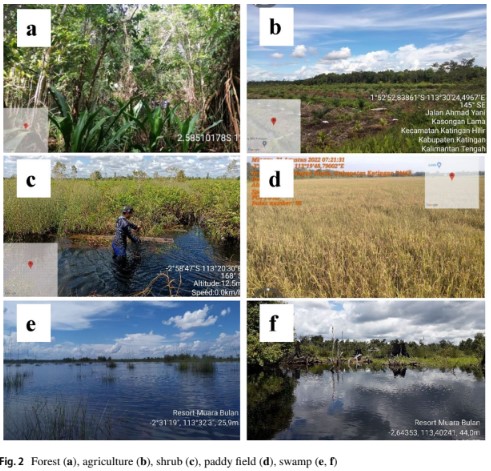Understanding deforestation in the tropics: post‐classifcation detection using machine learning and probing its driving forces in Katingan, Indonesia
 Author: Ramdhani, Bambang H. Trisasongko, Widiatmaka
Author: Ramdhani, Bambang H. Trisasongko, Widiatmaka
Abstract: Increasing demands for agricultural lands and built-up areas, driven by rapid population growth in developing countries including Indonesia, exacerbates the strain on tropical forests. Therefore, crucial to regular maintenance of forest monitoring is necessary to support sustainable forest management and minimize deforestation. In addition, driving factors of deforestation need to be comprehended and serve as considerations in the development of policies and decision-making. The main objective was to provide an in-depth understanding of the phenomenon of deforestation and its underlying variables in tropical regions, with a case study of Katingan Regency, Indonesia. Machine learning for remote sensing data analysis was integrated to investigate multi-temporal land cover in scouting deforestation and its driving factors. We found that the performance of random forests (RF) in all experimental settings was generally superior to support vector machines (SVM), achieving the best overall accuracy of 0.95. Land cover change analysis in the Katingan Regency (covering 2.04 M ha) suggested total deforestation during 2004−2022 of approximately 247.108 ha, an average of almost 14 thousand ha per year. Logistic regression showed that selected predictors signifcantly infuenced the occurrence of deforestation. Non-forest areas devised a greater likelihood of deforestation than designated forest areas. Protected areas acted as an agent to minimize and impede regional deforestation. Meanwhile the probability of deforestation was greater on the outside of forest concession areas. We conclude that eforts to prevent deforestation need to be elevated, particularly in open-access production forests, characterized by high accessibility. In addition, the protection of the remaining forests, especially in non-forest designated areas, needs to be accommodated in regional spatial planning
policies.
Keywords: Deforestation, Indonesia, Logistic regression, Machine learning, Sustainable forest management
Journal URL: https://link.springer.com/article/10.1007/s41685-024-00330-0

 Indonesia
Indonesia